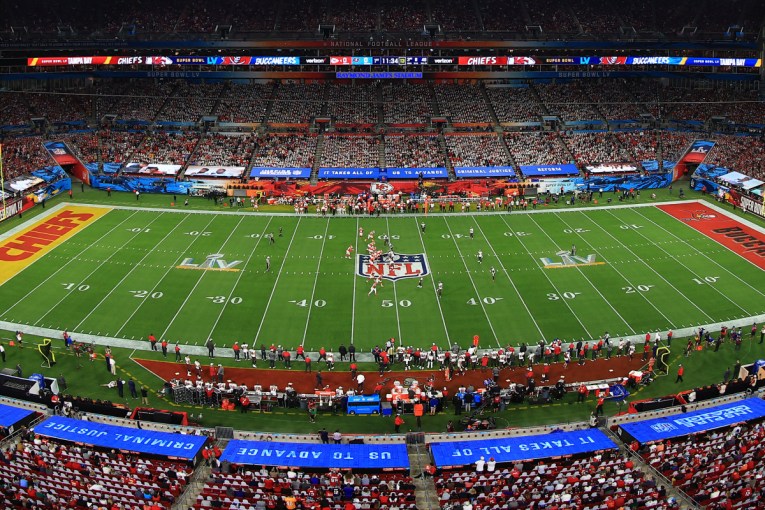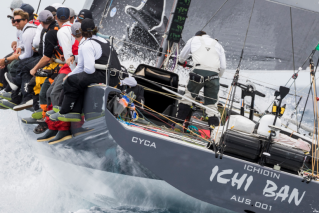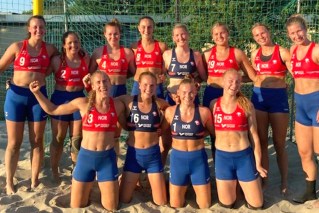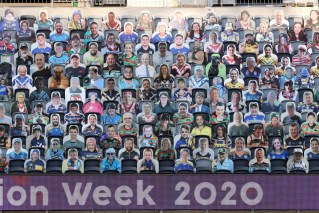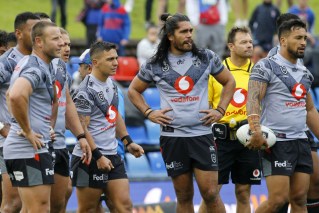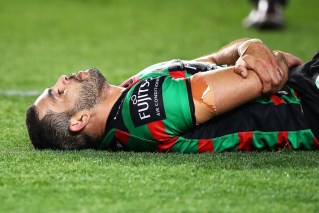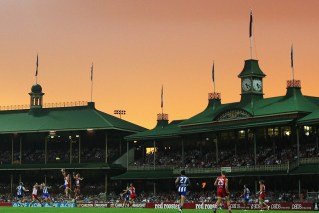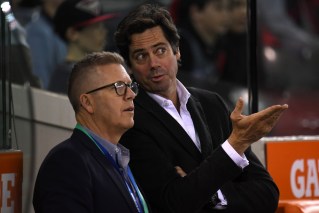The Gold Coast: our sporting graveyard
While the Gold Coast might fulfil the holiday dreams of more than 12 million tourists every year, it continues to generate nightmares for national sporting clubs.
The cocaine furore currently engulfing AFL team the Gold Coast Suns is just the latest instalment in a litany of troubles that has tarnished the Glitter Strip’s sporting credentials for almost 30 years.
Perhaps channelling some of the bravado of the white-shoe brigade and blue-sky dreamers who first developed the Gold Coast in the 1960s and 70s, Australia’s premier tourist destination has proven an irresistible lure to national sporting franchises.
• Why the Gold Coast Suns are a waste of AFL cash
• Remember the Titans: can they avoid the boneyard?
• How the Socceroos would look under Dawn Fraser
Famous for its surf, rainforests, theme parks and nightlife, the south-east Queensland tourist playground has been attracting Australian and international visitors for decades.
The raw statistics certainly show its appeal.
Stretching from Southport in the north to Coolangatta in the south, the Gold Coast is now Australia’s sixth-biggest city, boasting more than half a million residents and a local economy that generates 241,000 jobs and is worth $25.7 billion a year.

Gone: Gold Coast Blaze. Photo: Getty
On face value it’s a highly-lucrative market, ripe for the picking by any expansionary sporting organisation.
Unfortunately, it hasn’t quite worked out that way.
History shows almost every national sporting code that has tried to establish a permanent foothold on the Gold Coast has struggled and eventually failed.
Only two national teams are currently based on the Gold Coast – the Suns and the NRL’s Titans – and, if it wasn’t for multi-million dollar backing and long-term commitments, the region’s reputation as a graveyard for sporting clubs might have had two more headstones by now.
The challenge faced by these two clubs remains daunting and, with every misstep and misadventure, the ghosts of those who have fallen comes back to haunt.
The cocaine bombshell dropped by football code-hopper Karmichael Hunt last month is a perfect case in point.
Hunt, who began his football career in the NRL, then switched to AFL and now has a $2 million contract with rugby union, reportedly told investigators that he and up to 12 other Suns players used cocaine at an end-of-season celebration last year.
The NRL was caught in the collateral damage from Hunt’s explosive claims when he revealed to the Queensland Crime and Misconduct Commission that he was given the name of his drug dealer by a State of Origin and Kangaroos player.
The Suns’ woes got worse last week when Melbourne’s Herald Sun published photographs showing talented recruit Harley Bennell “racking up five lines of white powder”.
The Suns administration launched an immediate internal investigation, assisted by the AFL integrity unit, and the NRL is expected to follow suit with its own inquiry. The fallout is far from finished.
“Here we go again…”
While local commentators contacted by The New Daily fully expect the Suns to ride out this latest scandal, for them it was just another here-we-go-again moment.
In rugby league, the NRL brand first arrived on the Gold Coast in 1988 with the Gold Coast-Tweed Giants.

Gone: East Coast Aces. Photo: AAP
Poor on-field performances, appalling crowd numbers and numerous identity crises followed with the club morphing into the Seagulls, the Gladiators and then finally the Chargers before folding in 1998.
Every Aussie Rules follower remembers the “Bad News Bears” who, in 1987, became the first fully professional sporting team to be established on the Gold Coast.
One of the early national forays by the then-Victorian Football League, the Bears were initially bankrolled by disgraced businessman Christopher Skase who lost $30 million on the venture.
Millions more were subsequently spent keeping the Bears afloat before relocating to Brisbane in 1993, merging with Fitzroy three years later and transforming into the AFL powerhouse that is the Brisbane Lions today.
National soccer also came and went on the Gold Coast.
A-League club Gold Coast United, backed by forthright billionaire businessman and politician Clive Palmer, was plagued by falling crowds and administration problems. After three frustrating seasons, the club’s licence was revoked at the end of the 2011-12 season.
Others on the list of national franchises to go to the wall are:
Basketball – Gold Coast Cougars/Rollers (1990-96), Gold Coast Blaze (2007-12);
Rugby Union – East Coast Aces (2007);
Baseball – Gold Coast Clippers/Daikyo Dolphins/Gold Coast Cougars (1989-99);
Ice Hockey – Brisbane Blue Tongues (2008-2013).

Are they next?: Gold Coast Titans. Photo: Getty
Transient population
Sports management academic Dr Jason Doyle blamed the failures on the region’s transient population and an outdoor lifestyle that offered residents a wide variety of interests and activities.
“The Gold Coast has so many competing interests. Yes, we’ve got the beach and there’s always a lot going on socially,” Dr Doyle said.
“There’s also a lot of outdoor activities to choose from and they all compete and jockey for our limited time, attention and spending money.”
Dr Doyle, a lecturer on the Gold Coast campus at Griffith University Business School, said national sporting clubs had consistently struggled to maintain supporter interest over the long-term.
“Everybody loves a winner … we can see with the Suns at the moment that they are perhaps not delivering on some of their promises on the field,” he said.
“But the issue there is that teams can’t guarantee on-field success. The way the football leagues are set up, sustained success is not possible when you’ve got things like salary caps and drafts.
“The obvious way to ensure success is to build a strong playing roster but then with one tackle or one wrong step, your star player is out injured and your plans are in disarray. So without being able to control for success, the key is to focus on what you can control – the team’s identity.”
Dr Doyle praised the Suns on making it clear to residents that the club was there for the long haul.

Can the Suns ride out the drug scandal? Photo: Getty
Community identity
He was confident the Gold Coast could support a national team so long as it connected strongly with the community and built a strong brand.
“Building identification with people and becoming something meaningful that people can connect with is what sporting teams have to do to negate that uncontrollable on-field success factor,” he said.
Veteran Gold Coast publisher and journalist Pat McLeod agreed it was difficult for sporting clubs to succeed in the local market because people had so much to do.
“Do you go to the Titans at 3pm on a Saturday or Sunday afternoon when it’s brilliant sunshine and you’ve got the world’s most popular beaches at your doorstep?” he said.
Mr McLeod said figures had shown more than half the people living on the Gold Coast “came from somewhere else five years earlier”, so their sporting club loyalty was already anchored in their previous city.
However, Mr McLeod said the notion that the Gold Coast was a graveyard for national sporting teams was unfair.
“I get annoyed at the Gold Coast knockers because, for example, if you trace the history of the NRL teams that have fallen over, you’ll find it was more about political expediency,” he said.
Mr McLeod said that in 1988 an enormous financial burden was placed on the Gold Coast-Tweed Giants, who were also forced by the NRL to play across the NSW border in Tweed Heads.
“The odds were always stacked against them,” he said.
“They were the innocent pawns … of course, the power base of the Super League and NRL wasn’t on the Gold Coast … that was either in Sydney or Brisbane or with News Limited.”
Mr McLeod said those claiming the Gold Coast was “not a sporting town” ignored highly successful events such as horse racing’s Magic Millions Carnival, the Gold Coast 600 race for V8 super cars and the iconic Coolangatta Gold surf race.
